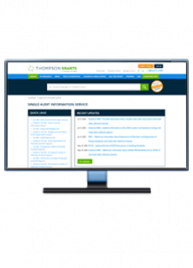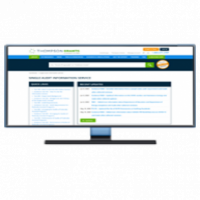Sneak Preview: OMB M-21-27 Provides Guidance on Using Evidence

(The following was excerpted from a recent Thompson Grants 360 article.) The Office of Management and Budget (OMB) recently provided detailed guidance to help federal agencies develop learning agendas, annual evaluation plans and capacity assessments that will guide them in making evidence-based decisions on policy, as well as in planning grant programs.
OMB on June 30 issued Memorandum M-21-27, Evidence-Based Policymaking: Learning Agendas and Annual Evaluation Plans, which follows up on previous OMB memoranda issued in 2019 (OMB Memorandum M-19-23) and 2020 (OMB Memorandum M-20-12) aimed at meeting the requirements under the Foundations for Evidence-Based Policymaking Act of 2018 (Pub. L. 115-435), which urges the federal government to make decisions using the best available evidence, garnered through “rigorous and systematic analysis and governed by principles of scientific integrity.”
The latest memorandum emphasizes that agencies should not simply develop the deliverables required under the Evidence Act ― learning agenda, annual evaluation plans, and a capacity assessment for statistics, evaluation, research and analysis ― “and then turn their attention elsewhere,” noting that “success requires that [an] agency develop processes and practices that establish habitual and routine reliance on evidence across agency functions and demand new or better evidence when it is needed.”
The learning agenda, or strategic evidence-building plan, focuses agency attention on the evidence needed to solve big problems. When building a learning agenda, agency leaders and stakeholders should consider questions that can help identify both evidence needs and evidence gaps needed to achieve strategic goals and objectives as identified in the Agency Strategic Plan. “By thinking strategically about evidence needs, agencies can limit ad hoc and scattered analytic efforts, and the associated inefficient use of scarce resources, instead prioritizing those questions that, when answered, can inform pressing decisions and high-priority functions,” according to the memorandum.
Evaluation plans summarize the specific evaluations an agency intends to undertake to address the questions in the learning agenda, along with other areas that require significant review. Capacity assessments will help agencies to determine their ability and infrastructure (i.e., agency staffing, funding and processes) to carry out evidence-building activities (e.g., performance measurement, policy analysis and program evaluation). “The capacity assessment should not be a compliance exercise; OMB is particularly interested in understanding how the agency intends to use the information for action and improvement,” the memorandum states.
(The full version of this story has now been made available to all for a limited time here.)
Join us for our following Thompson Grants event:
Federal Grants Forum For Institutions of Higher Education | July 21 - 22, 2021
Federal Grants Forum For Tribal Nations | August 11 - 12, 2021



